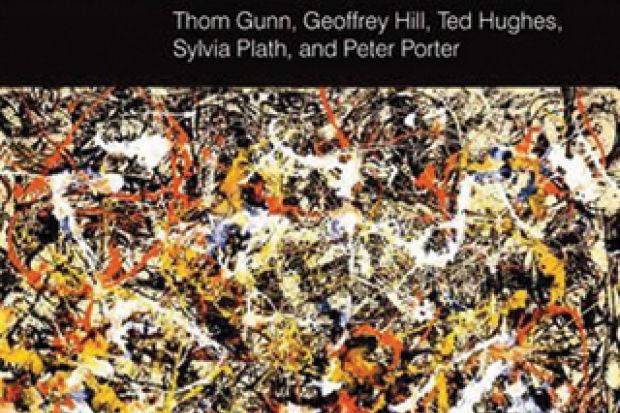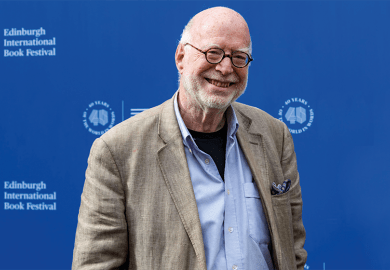Although Sixties street fights between mods and rockers were prone to violence when someone was pushed through a shop window, the fracas between Movement poets such as Philip Larkin and those from the Group such as Thom Gunn, incited by Observer poetry critic Al Alvarez, drew more actual blood. If rockers were bikers and mods rode Vespas, Movement poets preferred restraint over excess while the Group courted danger to the point of self-destruction.
William Wootten here examines the conflicting “emotional styles” that characterised poetry of the 1950s and 1960s, along with the extraordinary influence of Alvarez’s introduction to the 1962 anthology The New Poetry, “Beyond the Gentility Principle”. In large part Alvarez not only promoted the reputations of Sylvia Plath and Ted Hughes but also created a taste for “poetry of extremes” that scorned the provincialism of the previous generation.
More rivalrous than comradely, writers from both camps nevertheless shared Shelley’s belief that poets were unacknowledged legislators of the world, with contesting tastes signifying that poetry actually matters. With this in mind, Wootten’s assessments of individual poems entail meticulous comparisons supported by careful close reading. However, on the ultimate question of which side produced the greater art he is usually magisterial, preferring a mediating role.
With Alvarez’s sensibility as a touchstone for discussing broad societal transformations in post-war Britain, Wootten contextualises the momentous underlying cultural changes embodied in the new aesthetics. He also reminds us that although Freud did not endorse id drives over the rational ego, popularisation of his theories authorised poets to explore their own aberrant mental states in pursuit of “authenticity”, “sincerity” and “seriousness”.
Seriousness, as defined by Alvarez, was evinced in the poet’s willingness to face the full range of his emotional experience rather than looking the other way. Gentility, in contrast, perpetuates a view that life is orderly and that emotions and habits are generally decent and within conscious control, depending heavily on repressing the libido in favour of upholding convention.
“Beyond the Gentility Principle” was the manifesto that Plath had been awaiting, but it raises the question of how far the transgressions Alvarez advocated are justified in the service of art. Instinctively drawn to explorations of her own psychology, Plath’s poems such as Lady Lazarus and Daddy fully answered Alvarez’s call to violate decorum.
While denying the connection between extreme art and suicide, Alvarez nevertheless expressed misgivings over whether “the way we turned rashness and despair into literary principle [had] egged on” Plath’s suicide. Although some have compared Alvarez to a bloodthirsty crowd goading (metaphorical) jumpers including Plath, John Berryman and Veronica Forrest-Thomson, Wootten argues against reading back into the poems for clues of eventual suicide, ignoring personal distress.
Exonerating Alvarez, Wootten rightly sees the poems themselves as the central concern. He also rejects the common accusation that Plath misappropriated the experience of concentration camp victims by equating her emotional suffering with theirs – because Alvarez, himself a Jew, was not offended. Had he read Plath’s unpublished letters to her mother, where she repeatedly refers to Hughes’ parents as “skinflint Yorkshire jew-bastards”, Alvarez might have felt differently.
Much to Wootten’s credit, he avoids entering into the controversy over the Plath/Hughes marriage. Nevertheless, Plath’s acolytes can take solace in Wootten’s characterising Hughes’ poem Dreamers as “deeply unpleasant and racist” and the collection Crow as exhibiting Hughes’ “quasi-fascist tendency”.
Making obsolete literary battles compelling, even when they include physical violence, is never easy. A book focused on “seriousness” permits few opportunities for levity – in this case just one: referring to a minor poet “whose decision to quit poetry for advertising cannot be greatly regretted”. In The Battle of the Books, Jonathan Swift pulled it off because he was fully partisan. Much as The Alvarez Generation is a work of unquestionable scholarship, its dark subject matter includes too much actual aggression for the playfulness that makes enjoying Swift’s imaginative recreation of literary warfare still enjoyable more than three centuries later.
The Alvarez Generation: Thom Gunn, Geoffrey Hill, Ted Hughes, Sylvia Plath and Peter Porter
By William Wootten
Liverpool University Press, 224pp, £25.00
ISBN 9781781381632
Published 30 April 2015
Register to continue
Why register?
- Registration is free and only takes a moment
- Once registered, you can read 3 articles a month
- Sign up for our newsletter
Subscribe
Or subscribe for unlimited access to:
- Unlimited access to news, views, insights & reviews
- Digital editions
- Digital access to THE’s university and college rankings analysis
Already registered or a current subscriber? Login





